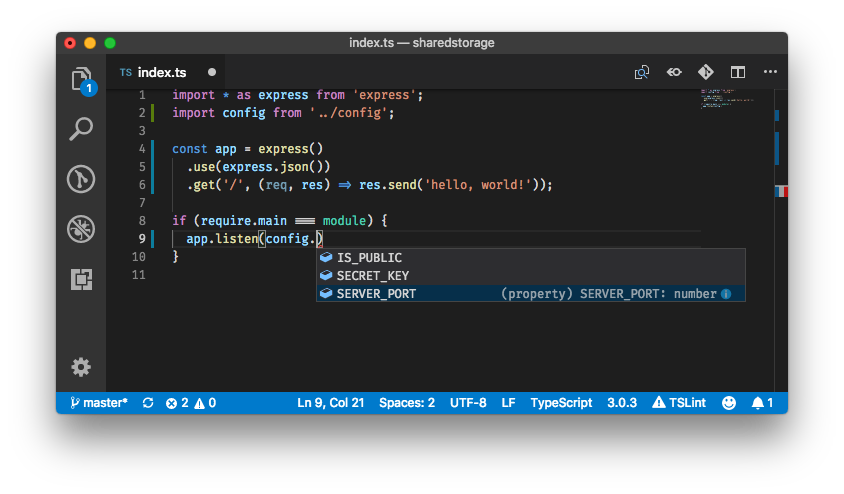config.ts v1.0.0

📚 Transparent, typesafe environment configuration

Most of today's configuration systems rely on environment variables, json files or other rc formats. While usually those methods deliver, they have one problem: since we do not commit config files, their structure and usage are implicit. What guarantee do we have in run time, that process.env.SERVER_PORT is set and valid?
Config.ts comes to change that.
With Config.ts you define the template of the configuration file and use it to generate configurations everywhere. Config.ts contains these awesome features:
- ✅ Runtime validation of the configuration existence and shape!
- 📐 Fully typed configuration object in your code! (if you use typescript)
- 📝 A cute little CLI to configure your projects when deploying!
- 🦄 Unicorns!
Quick Start
First, install Config.ts using npm:
npm install config.tsCreate a ./config.ts file in your project root, e.g:
import { loadConfig } from 'config.ts';
export default loadConfig({
SERVER_PORT: 'number',
IS_PUBLIC: 'boolean',
SECRET_KEY: 'string'
});Use your configuration everywhere in your code by importing it from the ./config.ts file:

When deploying, configure using the comfortable Config.ts cli, by running npx configts:

This will create a ./.config file in your project root, which is the actual configuration json file and therefore should not be committed, so the last step is to add .config to your .gitignore file (or any other vcs ignore files);
The config.ts file
The ./config.ts file is actually the configuration template. You define it using the loadConfig function. Config.ts expects this file to export the loaded configuration as an export default, so it can be used both by your code and by the Config.ts cli.
The loadConfig function
The loadConfig function expects an object which describes the structure of the configuration. The object contains the keys and type of the configuration, where the available types are string, number or boolean.
Importing config.ts file in your code
In order to use the configuration in your code, simply import it from the ./config.ts file in your project root. The way loadConfig is defined will ensure that you get a fully typed configuration object in your code. In runtime, loadConfig ensures that a configuration json exists in ./.config, and that the types match the schema it is defined with, and populates the object it exports with that json.
Contribution
Suggestions, issue reports and pull requests are always welcome.
7 years ago